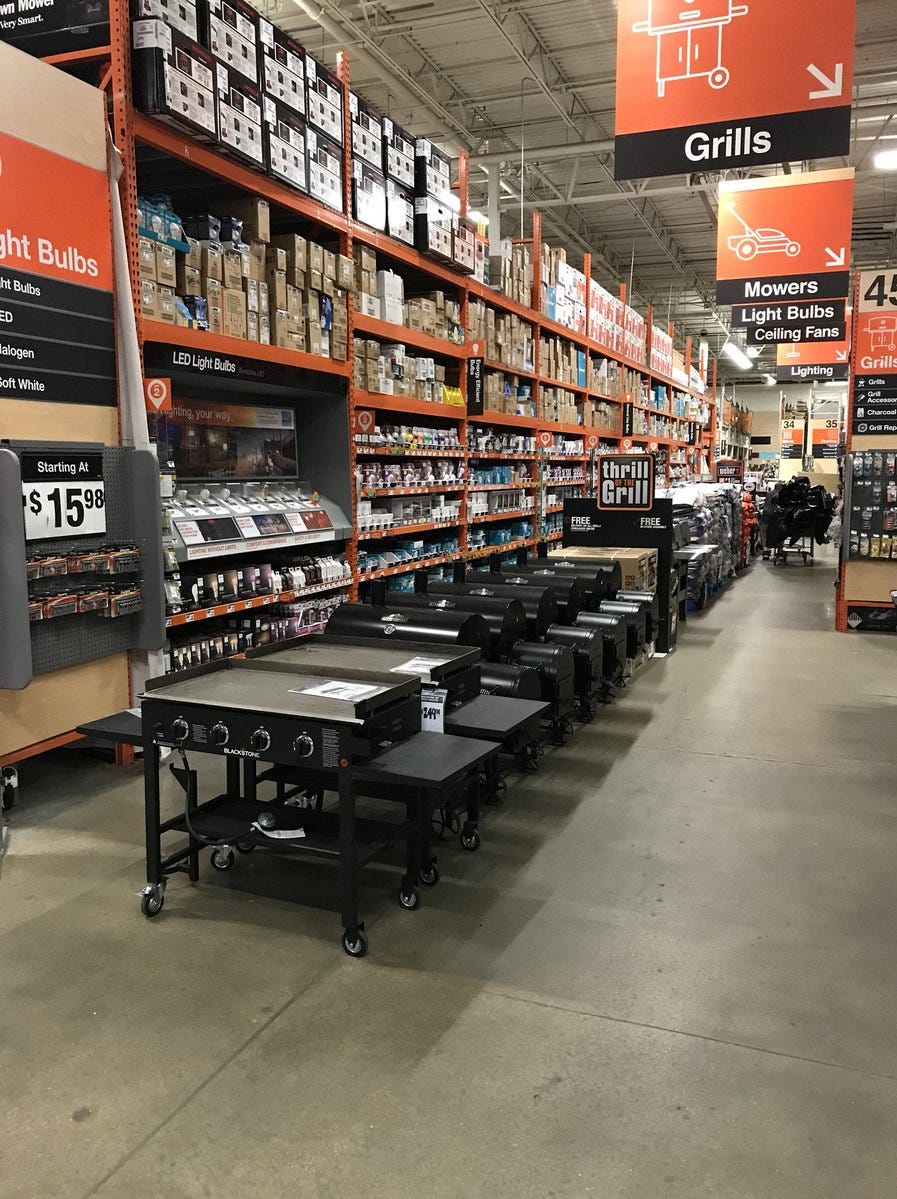How do you take the same intense interest you have for hobbies and apply it to your job?
Confessions of a Former Fire Juggler…

And here’s the crazy part: I went from learning to juggle three balls to doing fire juggling shows in about six months. It was all I did my freshman year of college. I really liked the challenge, the progression, and how tangible results were. I was juggling at big college events like basketball and volleyball halftime shows.
It wasn’t all success stories though. In one of my first fire juggling shows I actually ended up catching on fire through getting a lit torch too close to a bucket of kerosene. The fire exploded all over me, and I would have likely burned to a crisp had my friend Tyler not jumped out of the audience, tackled me to the ground, and rolled me out. Important lesson learned. After that I was much more careful and even brought a fire extinguisher with me for shows thereafter.
Later that year I would audition for America’s Got Talent with juggling, and although I didn’t make it onto the show it showed me that if you’re really dedicated to something you can progress very quickly.
The question is: while this generally works well for hobbies, can you similarly apply it in your career?

Building an Expertise
How does someone get to the fire-juggling level equivalent in their jobs? We’ve all heard of 100x programmers, people who get promoted insanely fast, or overnight celebrities. But what about the 99.9% of us who are more normal?
What I have found through my career is it is your own curiosity that drives this. Nothing else.
Want to be the best salesperson at your company? Take the best salesperson to lunch every day, listen to their sales calls, and study the best sales books, podcasts, etc.. Be curious what drives sales success. You’ll become the top salesperson in short order.
Want to be the best nurse? Get curious on what makes the best nurse – you’ll likely find it’s not knowledge but bedside manner, attention to detail, and holistic care. Shadow the best nurses at your own hospital. Keep a detailed journal of the things you notice they do (and don’t do). Become an expert at those things. Ask patients and your fellow medical co-workers for feedback after each treatment.
Want to be the best business analyst? Write out all the different things you’re curious about for your next report, even if you know it’s not in the data. Go find it. Keep turning over rocks. Look up examples online on how to visualize complex data (and then create those visuals). That will be the best report your company has ever seen.
It’s difficult to just “be curious” if you’re really not interested. In one study, researchers told hospital janitors that they aided in the care of patients through keeping clean rooms and facilities (which is true). This reframing of their role helped the cleaners see their tasks as essential to the overall patient care process rather than just menial chores. The results showed that when employees understood the broader impact of their work, their motivation and job satisfaction improved.
This is the entire point of the famous “parable of the bricklayers”.
After the great fire that razed London to the ground in 1666, the world’s most famous architect, Christopher Wren, was tasked with rebuilding St. Paul Cathedral.
One day in 1671 Christopher Wren watched three bricklayers on a scaffold, noting that each was working at a different pace and level of enthusiasm. One was slow and plodding, another was working hard but was clearly tired of the work, while the third was enthusiastic and never seemed weary of laying the bricks.
Christopher Wren asked every bricklayer one question: “What are you doing?”
The first bricklayer replied, “I’m building a wall”
The second bricklayer replied, “I’m earning a living to feed my family”
But the third bricklayer, the most productive of the three replied with a twinkle in his eye, “I am a cathedral builder. I am building a great cathedral to the Almighty. ”

This same concept can be applied to your job. However you see it today, if you’re able to reframe it (similar to how the researchers did with the nurses or Christopher Wren did with the bricklayers), your curiosity and intent can change for the better.
Becoming One of the Top Category Experts
When I started my job at Traeger Grills, my role was completely new and they didn’t quite know where to put me or even what I would work on. I chose my title, which was Manager of Consumer Insights & Strategic Planning. I had done consumer insights work before at General Mills on Nature Valley granola bars, but those were clearly very different from grills.
That being said, I dove in headfirst. I gobbled up all the data I could get. I read every comment in Traeger groups on Reddit and Facebook, I watched YouTube review videos, and I walked nearly every store Traegers where were sold. Then I subscribed to all of our competitors’ emails, joined their groups, and walked their stores. I started running my own surveys to track brand awareness, consideration, and perception. And I kept going.
Within a year, I was probably one of the world’s top experts on the grill category. I would regularly meet with our sales team, retailers, board members, and others to tell them about the category. I remember going golfing and looking into people’s backyards who bordered the golf course and I could tell you what grill they had, how much it cost, and where they likely bought it.
It was so much fun.
I still love the grill category and always will. I’ll still take time at The Home Depot just to walk the grill aisle and watch people lift the lids on the grills.

This is an example of domain expertise. While there are plenty of Consumer Insights people out there, I was building an expertise in a specific category. I could have done the same with my job title – if I wanted to just be extremely good at Consumer Insights I could have taken a similar path and gone nuts understanding survey methodology, consumer testing methods, data analysis, and more.
One of my friends, Stephen, has done this path – he went as far as to start a Consumer Insights podcast, a networking group, and more. You get the point. You have to just be really curious and proactive.
How to Build Your Own Expertise in Your Industry
Here are five general steps to take to build an expertise in your industry:
- Subscribe. Start by subscribing to any newsletter, brand, etc. as well as follow all of them on social media. At Traeger I subscribed to every competitor’s email list, I joined lists like the Hearth, Patio, and Backyard Association, and followed all the brands on social channels.
- RSS Feeds. Set up news alerts for all of your competitors, as well as for anything related to your category. You can set this up through Google Alerts. I found this helpful, for example, if a competitor was at the Consumer Electronics Show (CES, which is where many companies release products) or made a strategic hire.
- Category Adjacencies. There are many industries like yours, and you can often learn more from them than just focusing solely on yours. For example while at Traeger I also followed at-home exercise trends and companies like Peloton, since there’s a lot of similarities between the categories (ex: both brands require buying, installing, and maintaining big equipment at home, building a community around their products, etc.). I found it extremely helpful to draw on trends happening in other categories and apply them to ours.
- Data. Know your data better than anyone. Every category has varying degrees of data, and I have found in most you need to triangulate your own data. For example, there wasn’t a go-to source on all grill sales, but I would use a combination of market share data, our sales numbers, and survey data to build a model of overall sales by brand and retailer.
- Customers. You need regular interactions with your consumers otherwise you become out-of-touch. I’ve found the only way I can prioritize this is if it’s part of a project, so nearly every major product I work on I’ll include customer touchpoints. This can be done many ways – 1:1 interviews, participating in sales calls, focus groups, reading reviews, listening in on customer service calls, etc. I have never regretted adding in customer touchpoints to projects as it gives me helpful anecdotes to draw on and keeps me grounded.
The same logic with all of this can be applied to getting better at your job. You can set up similar subscriptions, RSS feeds, research similar jobs/trends, and truly study your job to be the best in class. Most types of jobs have some sort of national recognition – Teacher of the Year, 40 Under 40 CEOs, etc. I have found it incredibly rewarding to nominate people for these awards and see them win.
Conclusion
We hope anyone reading this finds this at least a little inspirational and gives you the boost to become a deeper category expert or better at your job. Finding what drives your curiosity is key. This is something that is difficult to create a formula for, as we can’t force you to read those RSS feed emails or follow your competitors on social media. If you’re having trouble peaking your curiosity, maybe it’s time to look for a new role or industry to work in. If this is the case for you, here are some resources you may find helpful:


